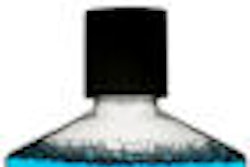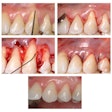A new landmark survey of New Zealand oral health shows that Kiwi teeth have significantly improved over the past two decades.
The 2009 New Zealand Oral Health Survey, released December 15 by the Ministry of Health, examines the habits and dental status of New Zealanders. It is the first comprehensive study on this scale since 1988, the government announced.
The survey was conducted from February to December 2009, and consisted of face-to-face interviews and dental examinations. Overall, 4,906 New Zealanders participated in the survey interview, with 3,196 respondents completing a dental examination. The survey was a follow-up to the 2006/2007 New Zealand Health Survey.
The survey findings are a "mix of the familiar and the novel," according to Robyn Haisman, PhD, chief dental officer, noting that it's well-established internationally that people in areas where the water supply is fluoridated have better oral health and that this survey is no exception. But there were some surprising findings, she added, such as the fact that Asian populations in New Zealand have far fewer cavities than other groups, but on the flipside have higher rates of gum disease.
Dental decay is still the most prevalent chronic disease in the country, with one in three adults having untreated caries, the survey found. Key findings of the survey include the following:
Oral health of New Zealanders has improved over time. The prevalence of total tooth loss has decreased dramatically among New Zealand adults since 1976, and adults are retaining more of their natural teeth into older age. Among children, the proportion of 12- to 13-year-olds who are caries-free almost doubled between 1988 (29%) and 2009 (51%).
However, dental decay remains the most prevalent chronic (and irreversible) disease in New Zealand, and disparities still exist in oral health in New Zealand. In 2009, one in three adults had untreated coronal decay, and one in 10 had root decay. There was evidence of active decay in all age groups, including older age groups.
Children and adolescents had relatively good oral health, as well as good access to oral healthcare. Overall, one in two children and adolescents ages 2-17 years were caries-free, and four in five had visited a dental professional in the previous year. Māori and Pacific children and adolescents ages 2-17 years had poorer past-year access. Additionally, worse oral health outcomes were experienced by Māori and Pacific children and adolescents, as well as by children and adolescents living in areas of higher socioeconomic deprivation.
Nearly half of all adults in New Zealand (44%) avoid dental treatment because of the cost.
Dentists are delighted to see that oral health has improved across all age groups since the 1988 survey, especially for children and young adults, according to David Crum, CEO of the New Zealand Dental Association (NZDA).
"Much of this is due to the continued commitment by dentists and the government to provide free dental care to the under 18 age group, but it's not all about free care as there has also been a huge reduction in the number of adults losing teeth as well," he said in a NZDA press release.
The findings from the survey will help inform service needs in the future, such as the confirmation that an increasing number of people are retaining teeth into retirement and old age, Haisman noted. "Other findings will help us to target strategies to encourage improved self-care and to reduce some of the barriers to dental treatment," she said.
Copyright © 2010 DrBicuspid.com



















